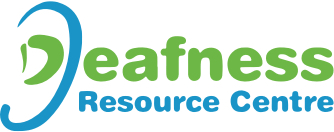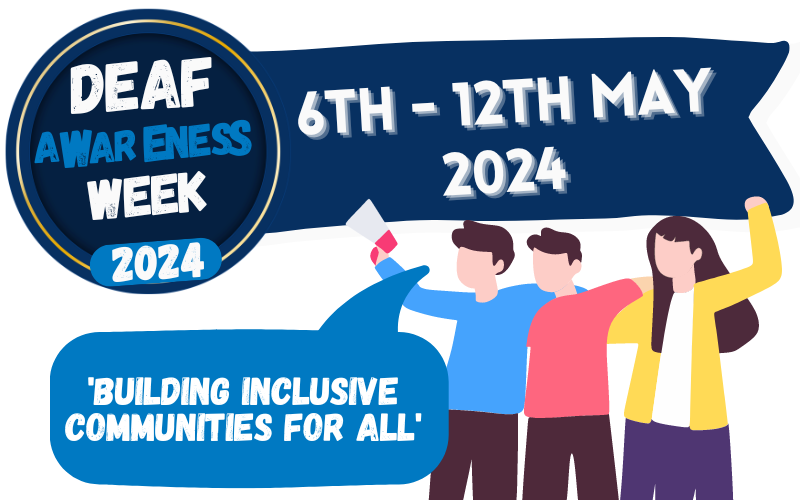
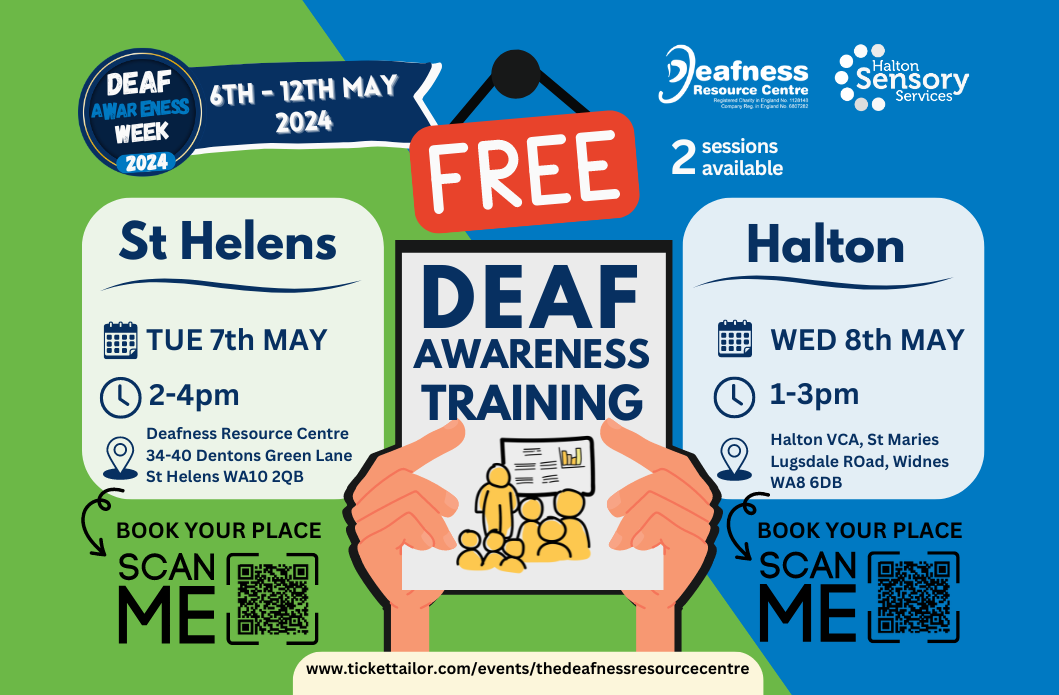
DEAF AWARENESS WEEK 2024
This year’s Deaf Awareness Week runs 6th – 12th May 2024
The aim of this year’s Deaf Awareness Week is to build inclusive communities for all.
The Deaf community often faces significant barriers to communication, which can lead to social isolation, limited employment opportunities, and reduced access to essential services. These barriers can include a lack of access to sign language interpreters, limited captioning and subtitling in videos and online content, and a general lack of awareness of the communication needs of Deaf individuals.
To address these issues, this year’s Deaf Awareness Week will focus on raising awareness of the inclusivity needs of the D/deaf community, celebrating deaf culture, language and history.
Through education, awareness-raising, and advocacy, we can break down the communication barriers that prevent D/deaf people from participating fully in society. Let’s work together to create a world where access to communication is a fundamental human right for everyone, regardless of their hearing ability.
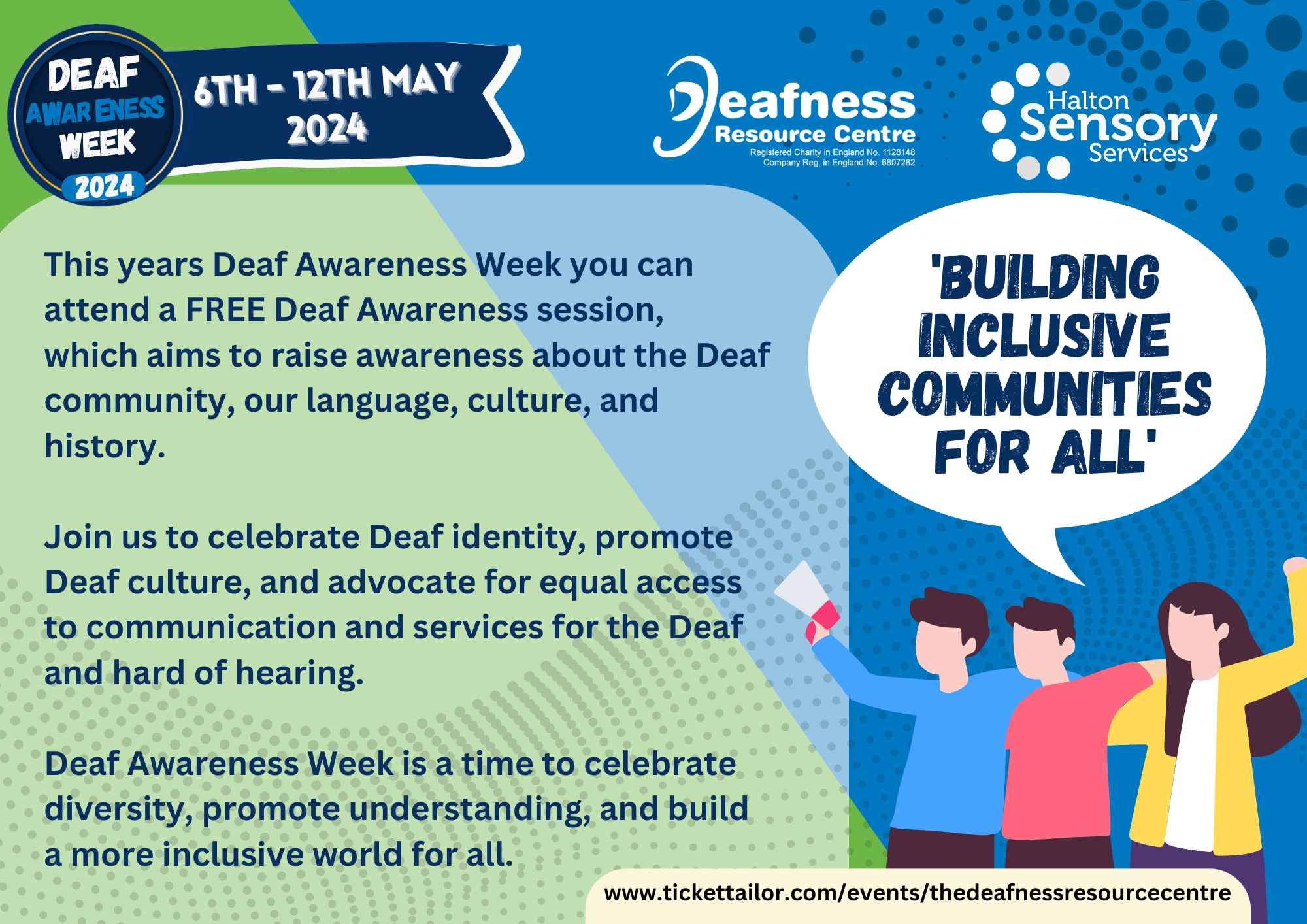

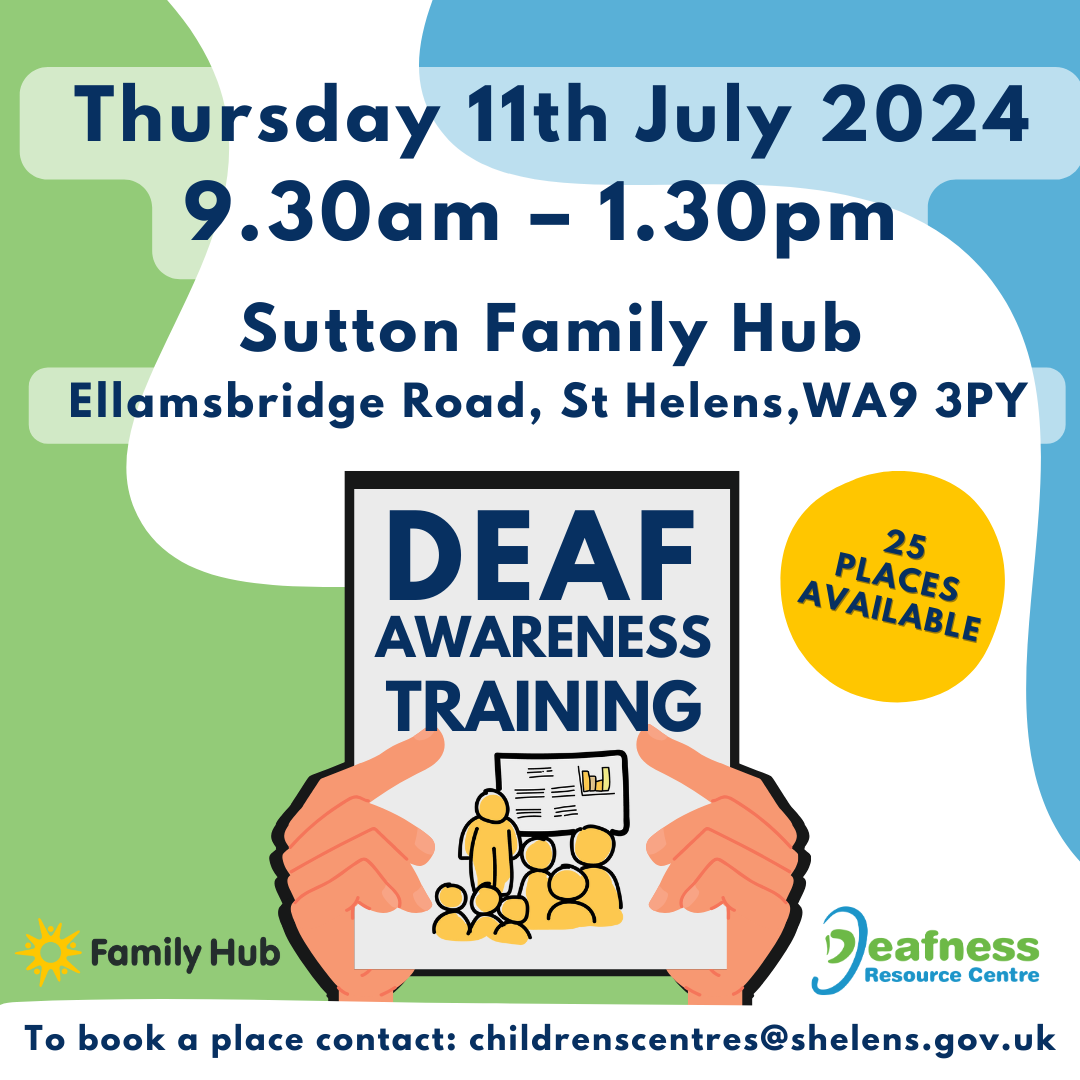
Read our case studies and testimonials
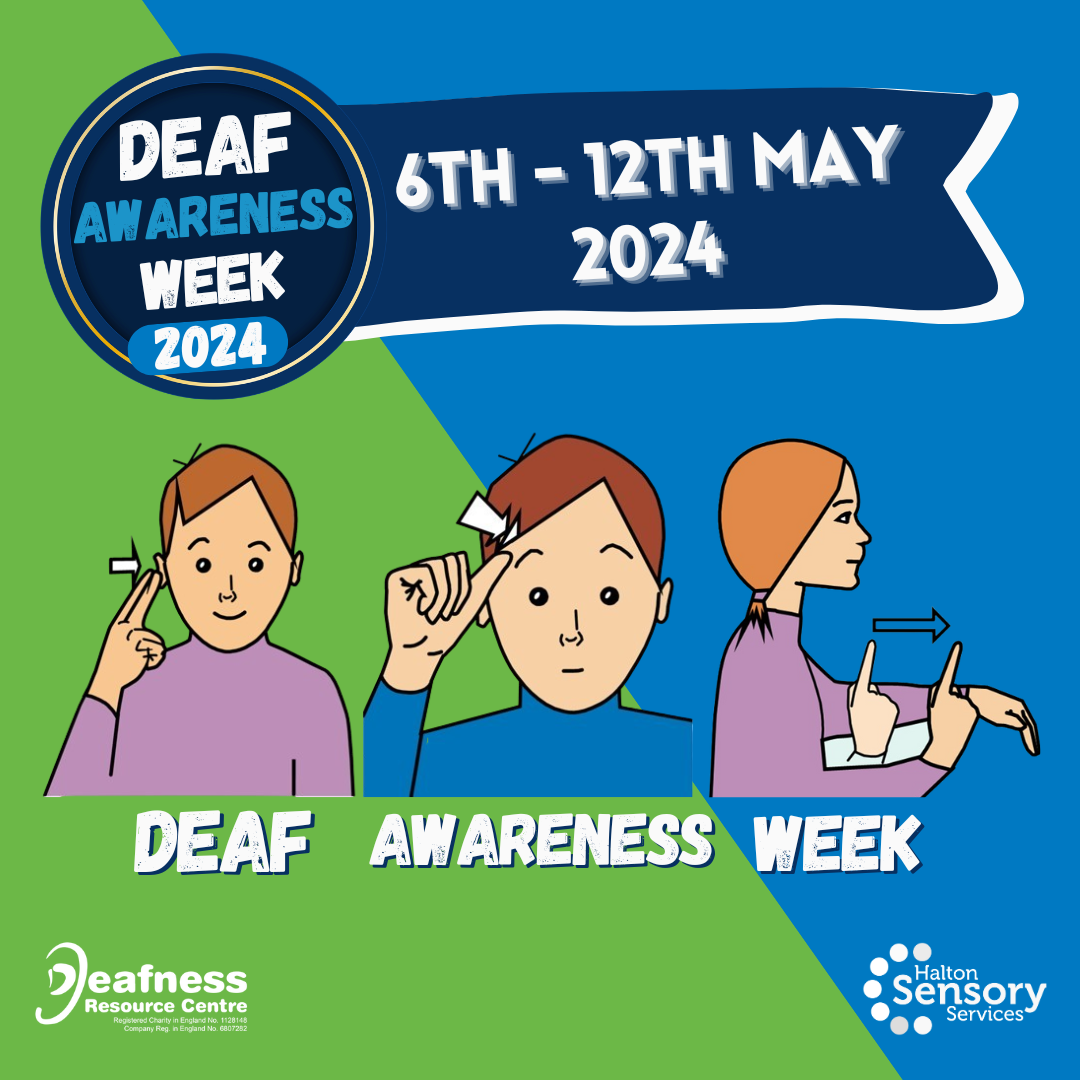
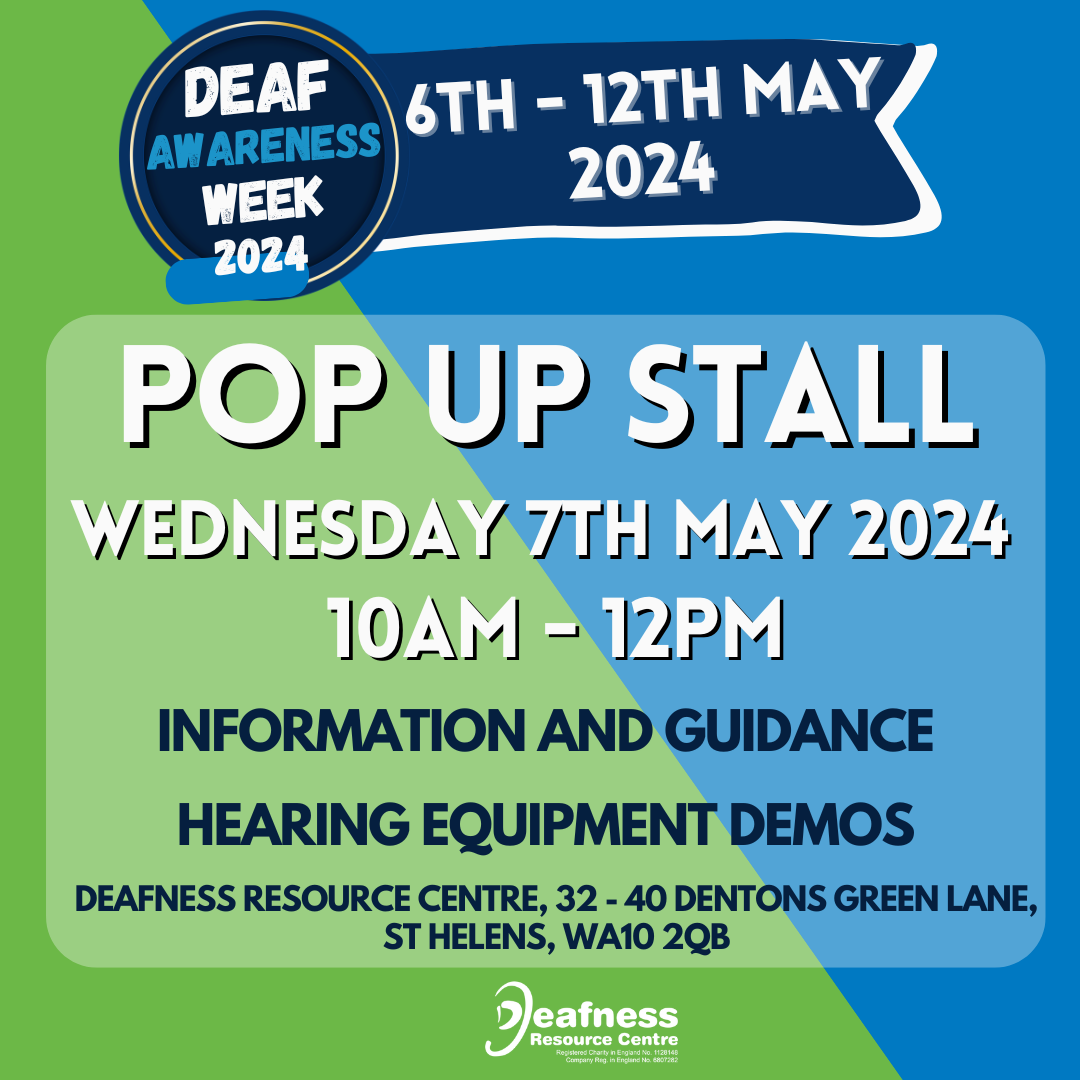
Deaf Awareness Week is an important time to promote understanding, inclusivity, and support for the D/deaf and hard of hearing community.
Here are some tips to help raise deaf awareness during this special week in 2024:
Learn Basic Sign Language: Take the initiative to learn some basic sign language. This can help you communicate with individuals who are D/deaf or hard of hearing and make them feel more included. Simple signs like greetings, thank you, and basic questions can go a long way in fostering communication.
Use Visual Communication: When interacting with someone who is D/deaf or hard of hearing, make sure to face them directly and maintain eye contact. Speak clearly and at a moderate pace, and use visual cues such as gestures and facial expressions to enhance understanding.
Be Mindful of Background Noise: Background noise can make it difficult for individuals with hearing loss to understand conversations. When possible, try to minimize background noise or move to a quieter location to ensure effective communication.
Caption Videos and Presentations: When creating or sharing videos and presentations, make sure to include captions or subtitles. This allows individuals with hearing loss to access the content and fully participate in discussions or events.
Provide Assistive Listening Devices: If you are organizing an event or meeting, consider providing assistive listening devices such as FM systems or loop systems. These devices can help amplify sound and improve accessibility for individuals with hearing loss.
Educate Others: Take the opportunity to educate others about deafness and hearing loss. Share information, resources, and personal experiences to raise awareness and dispel common misconceptions.
Support Deaf Organisations: Show your support for local deaf organisations and initiatives. Attend their events, volunteer your time, or make a donation to help them continue their important work in the community. Why not make that the Deafness Resource Centre. We would always welcome your support.
Foster Inclusive Communication: Encourage inclusive communication practices in your workplace, school, or community. Promote the use of visual aids, written communication, and other strategies that ensure everyone can participate and be understood.
Spread the Word: Use social media, local newspapers, and community bulletin boards to spread awareness about Deaf Awareness Week. Share stories, facts, and resources to engage others and encourage them to join in promoting deaf awareness.
Promote Accessibility: Advocate for accessibility in public spaces, workplaces, and educational institutions. Encourage the use of visual alarms, accessible signage, and other accommodations that make environments more inclusive for individuals with hearing loss.
Remember, deaf awareness is not limited to just one week. It should be practiced year-round to create a more inclusive and accessible society for all.
Are you Hard of Hearing? We have free equipment which could help improve communication
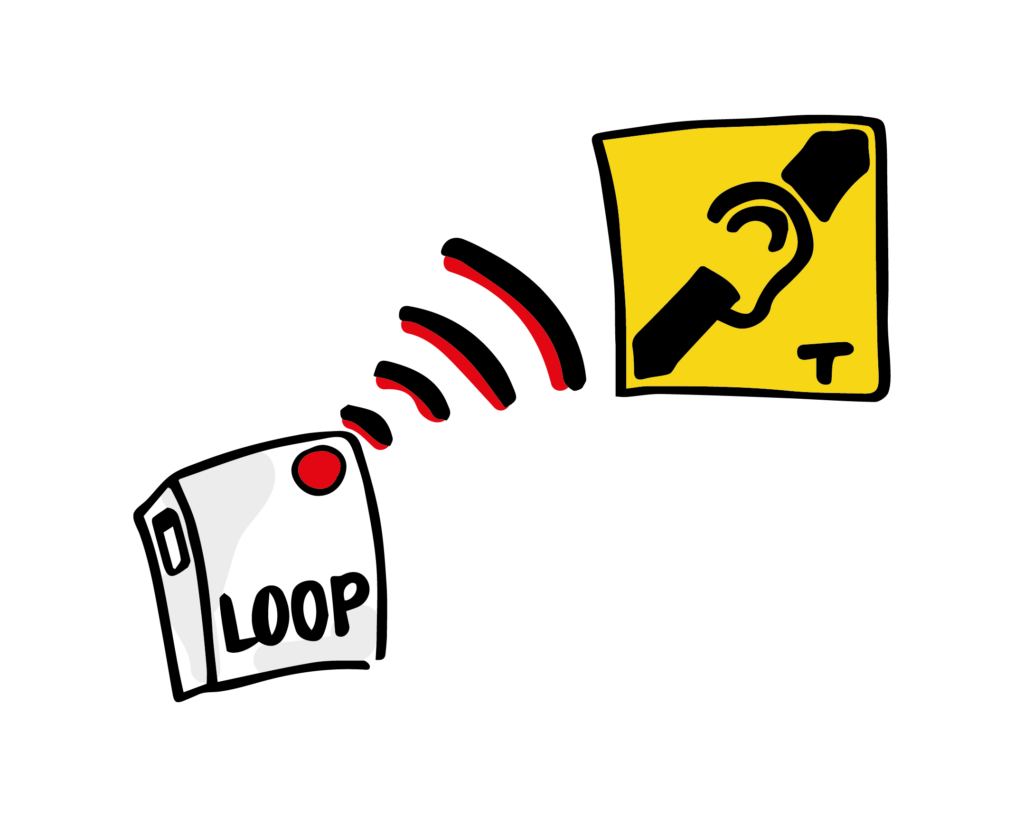
Want to learn British Sign Language
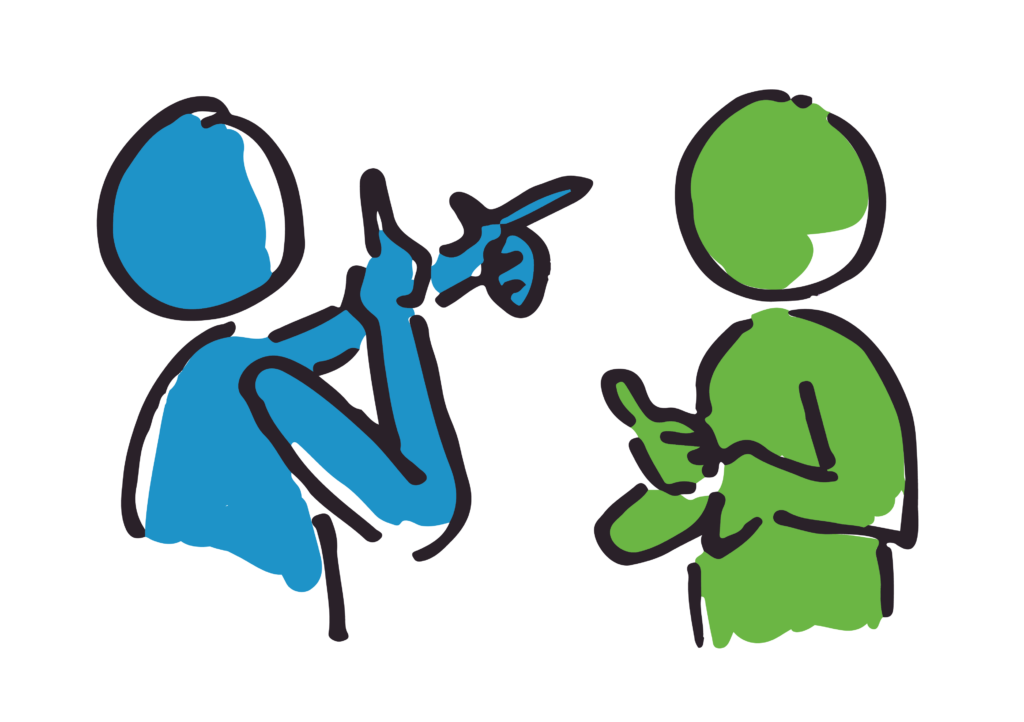
Want to know more about our Deaf Awareness Training Courses
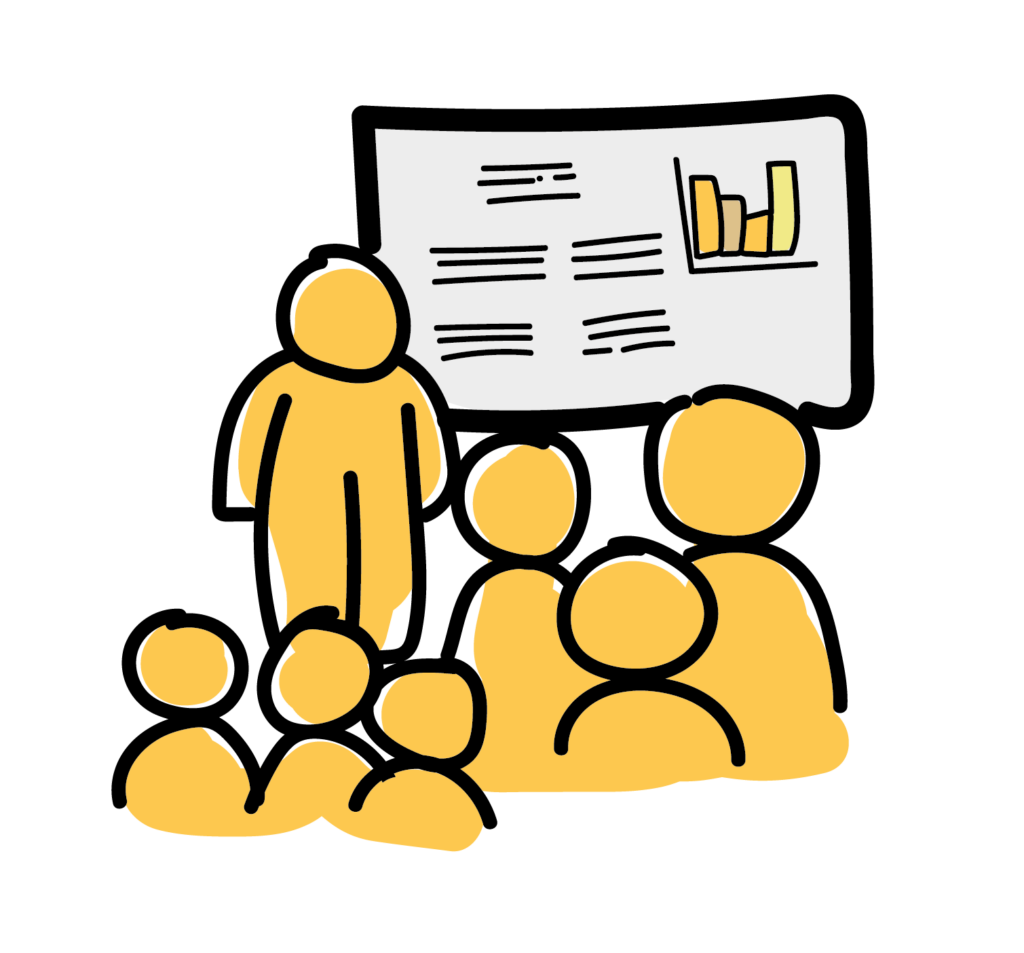
Resources
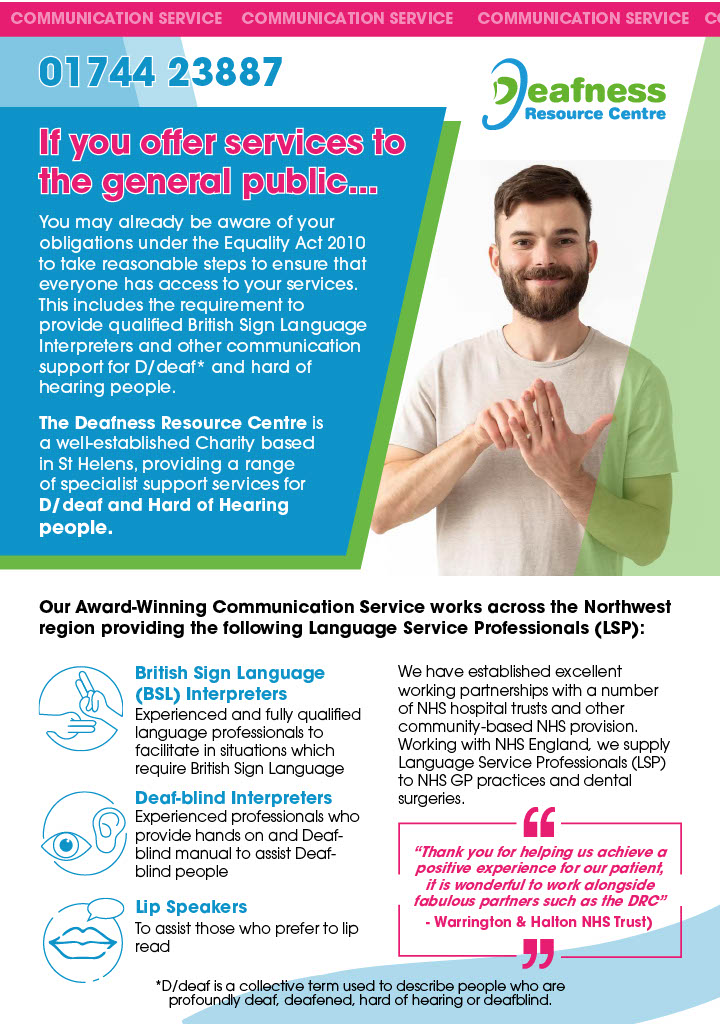
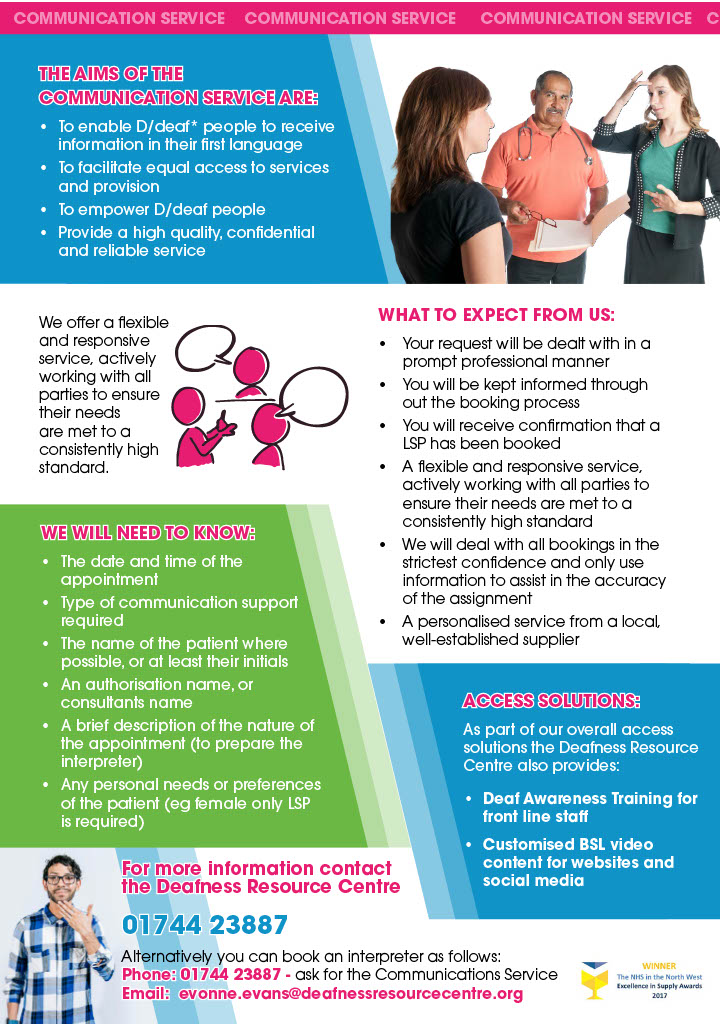
Outlined below are the distinctions between effective and ineffective practices and their repercussions within medical environments like hospitals. Unfortunately, the former is frequently observed, while the latter should ideally serve as the benchmark. Take a closer look…
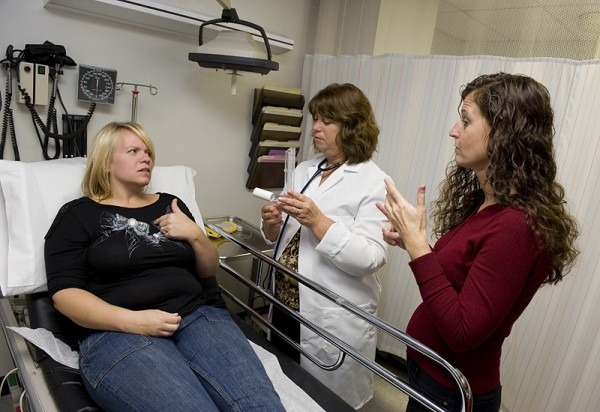


Ineffective Practice
-
Client attends appointment – no interpreter booked
-
Client has to have appointment rebooked with interpreter (delaying treatment) or client agrees to go ahead with appointment with no interpreter.
-
Consultant and Nurse engage with client by writing notes
-
Client has limited understanding of condition
-
Does not fully understand discharge and medication
-
Client presents again at GP or ED as condition worsens due to not understanding condition and medication
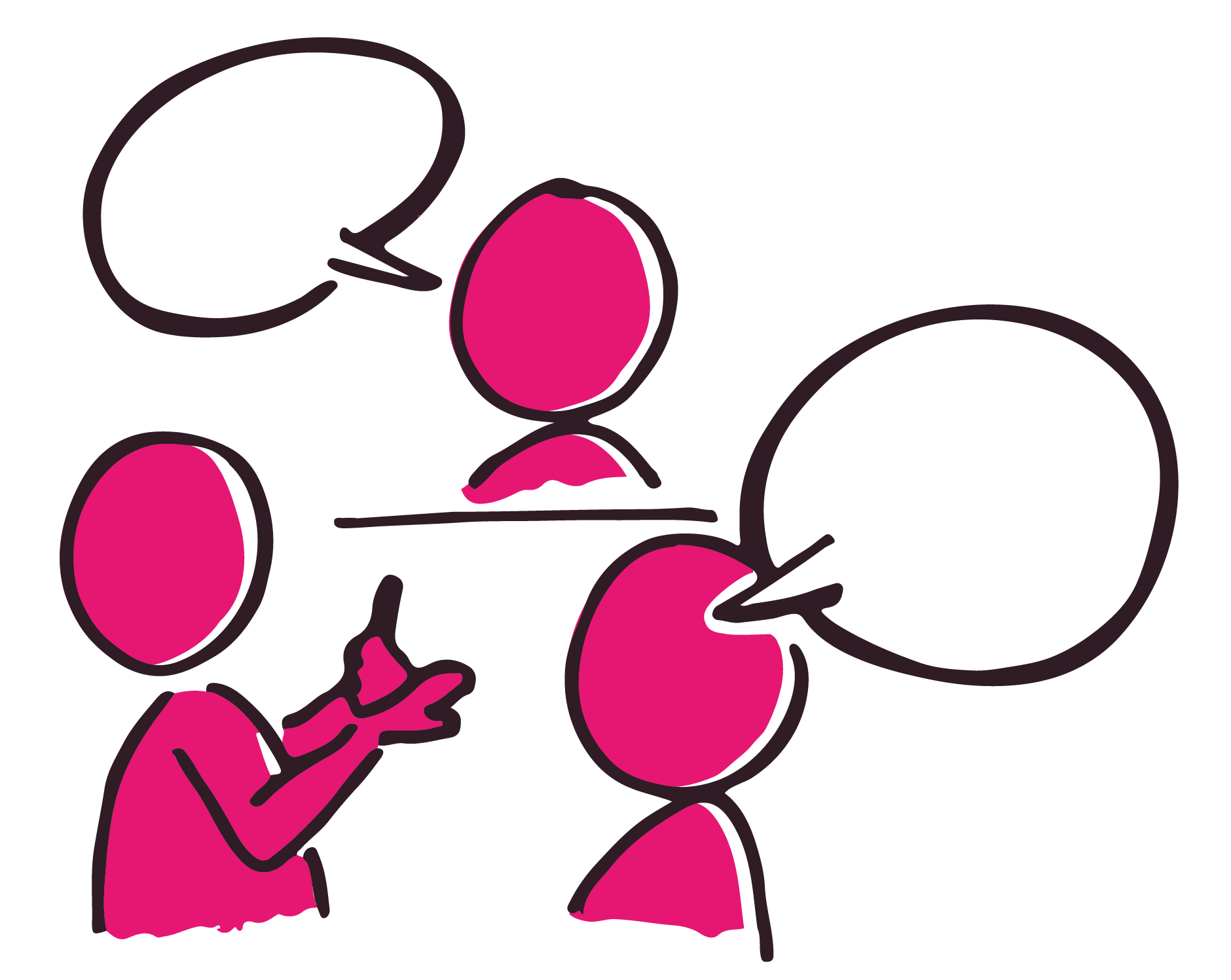
Effective Practice
-
Initial contact with Advocate and lead nurse for client at the Hospital who discussed some of the process for booking interpreters and gave advocate details to discuss further.
-
Lead nurse ensured that all information was given in BSL (ie specific diagnosis information)
-
Client initial appts with leading consultants – Comms service made sure the same interpreter was booked for each one so that it was easier for the client and the interpreter for the appts to run smoothly (as they would both know what was happening at each appt). Client requested the same interpreter for the surgery.
-
Interpreter booked for surgery, agreed that the interpreter would book out most of that day and also the next few days as client was expected to have a few days in hospital.
-
The interpreter contacted Communication Service by email/text/phone regularly to update DRC on when she would be needed for ward rounds and if any other appts were to be made.
-
The Communication Service would then contact the Interpreter bookings team to inform them when the interpreter would be attending.
-
Regular contact was made with the interpreter and DRC to ensure that they were still happy to attend daily and to ensure their wellbeing was being maintained.
-
Client was discharged with interpreter, and further appts have been made with the same interpreter attending each appointment. All agreed with hospital and client.
Outcome:
-
Client was happy and felt confident with all the information that was given to her (with the BSL interpreter).
-
Hospital was happy with Comms Team and the interpreter sorting the appts and informing them daily. Client feedback: “We are very lucky in St Helens for all the things DRC provide with interpreters. They understand what we need, and we don’t have to explain. Appreciate how hard you work to get all appointments covered.”
What it’s really like to be Deaf
People have all sorts of ideas about what it’s like to be Deaf. Help your friends be more Deaf aware by sharing these myth-busters with them.
All Deaf people can lip-read
False!
Not all people can lip-read.
Lip-reading is hard work. It takes a lot of effort and concentration and can be really tiring. Not all lip patterns are recognisable. Try looking in a mirror and saying ‘pat’, ‘bat’, ‘mat’ without using your voice – can you tell the difference? Get your friends to try it too.
Even people who are good at lip-reading can only understand about 30% of what’s being said – the rest is guesswork.
Deaf people can’t enjoy music
False!
Lots of Deaf people love music.
Some Deaf people can hear music, others might not be able to hear music very well but enjoy the vibrations.
There’s lots of technology that can help Deaf people enjoy music – find out more at how you can listen to music.
Sign language is the same everywhere
False!
Just as there are thousands of different spoken languages around the world, there are hundreds of different sign languages.
Even English-speaking countries have their own sign languages (Britain has British Sign Language (BSL), the USA has American Sign Language (ASL) and Australia has Australian Sign Language (Auslan). In the UK we also have regional sign language, so there are often variations with certain words.
Want to learn sign language? learn with us here
Deaf people can’t use the phone
False!
Lots of Deaf people use the phone
Some Deaf people can hear well enough to use standard phones, others use technology like amplified (really loud) phones.
Even if a Deaf person can’t hear on the phone they can text, FaceTime, Skype and use services like SignVideo.
Deaf people can hear everything with their hearing aids or cochlear implants
False!
It can be really frustrating when people assume Deaf people can hear OK if they’re wearing their technology.
Hearing aids can help focus sounds and make them louder, and cochlear implants carry sound directly to the brain. But this doesn’t mean a Deaf person hears in the same way, or as well as a hearing person.
Watch the above video to learn about our history and the deaf culture of Deafness Resource Centre
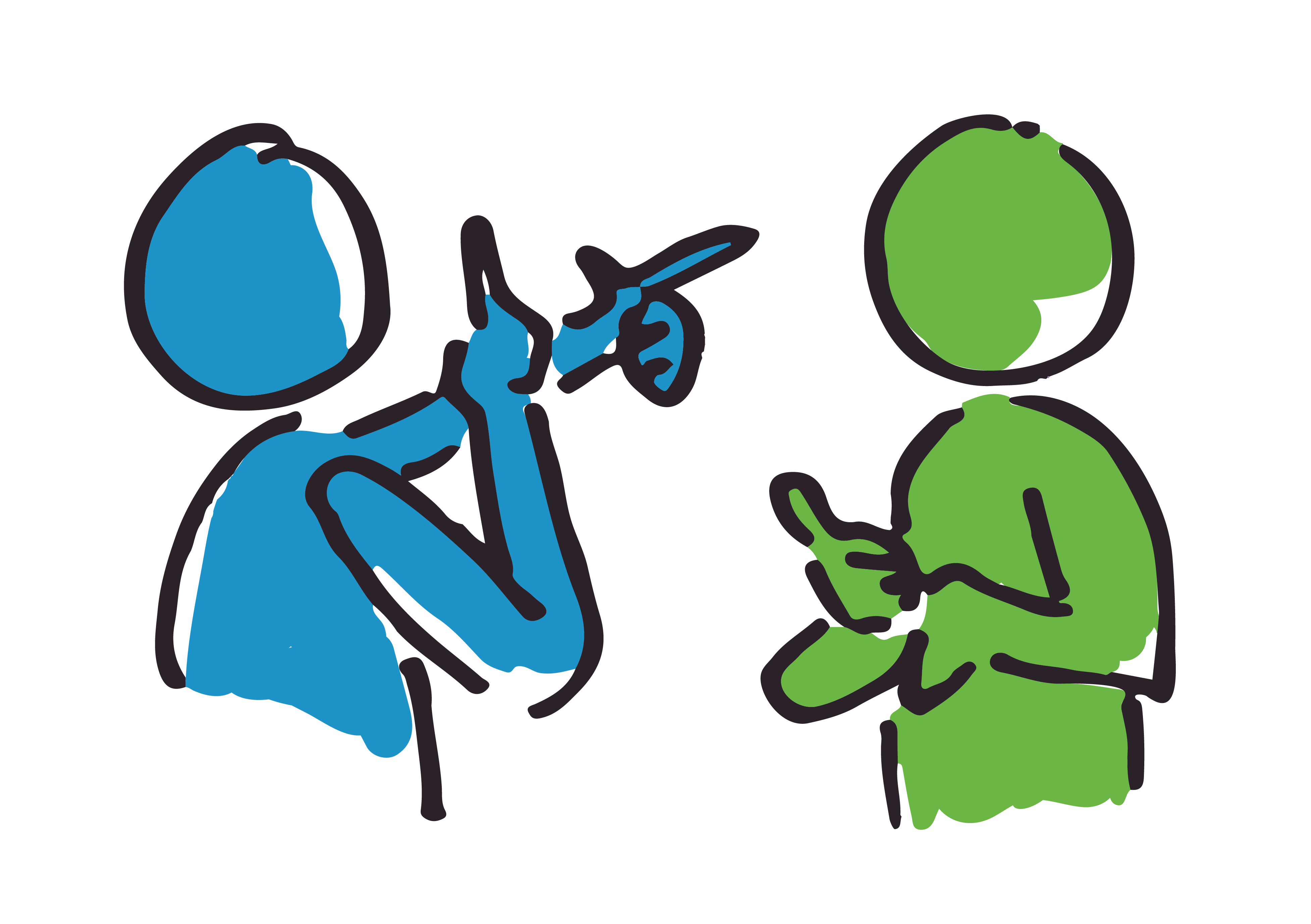
How Can I Support Deaf Awareness Week?
Top tips for communicating with deaf people are as follows:
- Always face the person
- Speak clearly, slowly and steadily
- Don’t cover your mouth- so the person can lip read
- Repeat and rephrase if necessary
Additionally, you can do the following to support Deaf Awareness Week:
- Deaf awareness training
- Sign up for the Disability Confidence scheme
- Join the #WeSupportDeafAwareness campaign
- Review your technology – eg. Hearing loop systems and instant video relay services

Monday – Thursday: 9am – 5pm, Friday: 9am – 4pm

01744 23887

0151 511 8801
